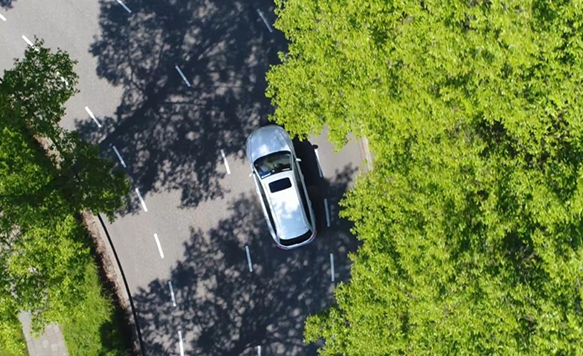Electric Vehicles Explained
EV stands for ‘Electric Vehicle’ which means BEV, PHEV and HEV are all types of electric vehicle, although some much more than others.
Battery Electric Vehicle (BEV)
Battery Electric Vehicles produce zero tailpipe emissions and are only powered by one or more electric motors and a battery.
Most models (such as the Fiat 500 Electric) will also generate small amounts of charge through regenerative braking whilst being driven.
A BEV is a 100% electric vehicle.
Hybrid Electric Vehicle (HEV)
Hybrid Electric Vehicles are powered by an ICE that runs on conventional fuel such as petrol or diesel and an electric motor that uses energy stored in a very small battery.HEV batteries are charged by the combustion engine and through regenerative braking.
HEVs are not plugged in to charge and simply improve the vehicle efficiency by recovering some energy.
Plug-in Hybrid Electric Vehicle (PHEV)
Plug-in Hybrid Electric Vehicles are like HEVs in that they combine an engine with an electric motor.
However, a PHEV will typically go about 30 miles on battery alone before the engine takes over.
Unlike HEVs, a PHEV requires you to plug it in to charge the battery and the engine is off until its needed.
Why Go Electric?
The benefits of electric vehicles are clear, with every manufacturer having at least 1 electrified model within its line up with more to be launched.
The growing choice means that there is an EV to suit everyone.
Drivers need to look beyond the upfront costs when considering an electric car.
Over the life of owning an EV, you could benefit from major cost efficiencies, greater convenience, comfort, and performance, as well as improving the environment around us.

Environmental Benefits
One of the biggest advantages of driving electric is the improvement it can make to the environment we live in.
Pure electric vehicles have no tailpipe, so they don’t emit any exhaust gases, which reduces local air pollution, particularly in congested cities.
Electric cars are an attractive solution for councils challenged to clean up air quality to improve their residents’ health and quality of life.

Discounts of Congestion Charges
Some areas are introducing Clean Air Zones with fees designed to discourage polluting vehicles from entering certain areas, with a key benefit of an electric car is being exempt from these charges.
For example, once registered, electric car drivers in London can travel in both the congestion zone and the new Ultra Low Emission Zone for free.
If this is a journey that you make often, the cost savings can be enormous.
The Ultra Low Emission Zone for example costs £12.50 a day for cars, which in a normal working year means you could save as much as £2,875 on top of any fuel savings.
As more and more cities consider introducing similar schemes, a switch to electric could be more advantageous right across the UK.

Lower Running Costs
One of the main advantages of electric cars is they're cheaper to run than a petrol or diesel vehicle.
On average, an electric car costs about 2p per mile to drive.
The average petrol equivalent is about 6 - 8 times that at 12p - 16p per mile.
Better still, some councils and workplaces offer free or low-cost charging benefits.
This means that there are even opportunities to get your fuel for free in some places.
Pure electric cars also benefit from zero road tax whilst some plug-in hybrids receive an annual discount.
With fewer moving parts, electric cars need less maintenance and servicing is much simpler.
EV Running Costs
Fully electric cars are cheaper to run than petrol, diesel, and plugin-in hybrids. Fact!
In 2010, there were only around 12,500 electric cars cruising the world’s roads.
Now there are more than 5 million.
This means production costs are falling, which we’ve already seen with battery prices coming down significantly in the last few years.
How much does an electric car cost?
Well, there are several things to consider.
Firstly, you need to choose the make, model, and trim level you want. Many people then compare the cost of this to the on the road (OTR) price of its petrol or diesel equivalent.
In nearly all cases of direct comparison, the EV is more expensive than its internal ICE counterparts.
However, there are many other factors that make an EV cheaper than an ICE vehicle once running costs and lifetime costs are considered.
Factors to consider include Road Tax, which BEVs are exempt from, Vehicle Excise Duty which can be £320 for the first 5 years for any vehicle over £40,000 and the cost of installing a home or workplace charger for which government funding is available. Also consider:
1. Fuel
Depending on your electricity tariff, charging your EV can be up to 5 times cheaper per mile travelled. (More on this below)
2. Servicing & Maintenance
Say goodbye to replacing timing belts, head gaskets & spark plugs, or taking your car in for oil changes.
The only moving part on an EV is the motor so servicing should be cheaper than an ICE vehicle.
3. Resale Value
EVs hold their value better than their gas-guzzling counterparts.
How much does it cost to charge an electric car?
This is one of the best parts about owning an EV and the biggest attractions of switching from petrol or diesel.
On average you can save up to 80% on fuel costs when you switch to EV.
There are different types of charges, all with different speeds and costs which we have covered on this dedicated page.
Here we will be focusing on home charging.
Most people charge up overnight when energy is cheapest, and there are now special EV energy tariffs where you can pay less than 6p per kilowatt-hour during off-peak hours.
Charging Example
Let’s say we have a Fiat 500 Electric with a 42kWh battery.
If your electricity costs 7p per kWh (typical off peak rate), a full charge is only £2.80 (0.07p x 42kWh).
With a WLTP range of 199 miles, the savings you can make on fuel are astronomical.
If you cover 10,000 miles per annum, this means you will pay less than £150 for the year to charge your Fiat 500 at home.
Lets compare this to a Nissan Plusar 1.5 dCi N-Connecta, which has a combined fuel economy of 60.6 mpg.
If diesel costs 120p per litre, then you will pay out around £890 for fuel.*
When compared with our Nissan LEAF Acenta 40kWh you’ll save almost £750 a year on fuel alone!
* Assuming your able to hit the 60.6 mpg consistantly
Discover Your Potential Savings in Fuel Costs
with our EV Comparison calculator in just 3 simple steps
Fuel Savings:
0*
Fuel Savings:
0*
at Home:
0**
Per Year:
0
* Figure show is an estimate based on your averge weekly mileage, home electricity cost and current petrol / diesel vehicle fuel price and mpg.
** Your home charge cost is calculated by multiplying your energy cost by the full capacity of the battery. The price shown is for a full charge.